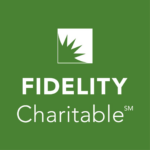Click below to listen to Episode 184 – Year End Charitable Gifting Ideas
Subscribe: Apple Podcasts | Google Podcasts | Spotify | Amazon Music | Stitcher | RSS | More
Year End Charitable Gifting Ideas

Cash giving isn’t the only option when it comes to supporting your favorite charities!

Want to give beyond just cash this year? Donate stocks, real estate, required IRA distributions, and more by December 31st. Bob and Shawn discuss the importance of alternative non-cash giving, as the majority of charitable giving is done through cash despite cash being a small portion of people’s assets.
Various options for non-cash giving are discussed in depth, including opening a donor-advised fund, contributing to a charitable gift annuity, donating appreciated stocks, and donating other valuable assets. Tune in now to learn about the many ways to give to your favorite charities in unique ways that continue to offer support for many years down the road.
HOSTED BY: Bob Barber, CWS®, CKA®
CO-HOST: Shawn Peters
Mentioned In This Episode
Bible Verses In This Episode
ACTS 20:35
In everything I showed you that by working hard in this way you must help the weak and remember the words of the Lord Jesus, that He Himself said, “It is more blessed to give than to receive.”
Want to ask a question about your specific situation? Schedule a complimentary 15 minute phone call.
EPISODE TRANSCRIPT
Shawn:
Want to give beyond just cash this year? Donate stocks, real estate, required IRA distributions, and more by December 31st. Let’s get some perspective.
Hi, my name is Shawn Peters. I’m joined as always by my father-in-law and Co-host Bob Barber. Today we’re going to be talking about year-end charitable giving ideas. And this is really helpful because there’s still time between now and the end of the year, assuming you watch this within the first week or so of being published. But our scripture for today is going to be Acts 20:35, “In everything I showed you that by working hard in this way, you must help the weak and remember the words of the Lord Jesus that he himself said, ‘It is more blessed to give than to receive.'” For those of you who don’t know, Bob is the one who puts most, if not all, of the scripts and information together for this. So Bob, do you have any quick comments before we get started?
Bob:
I do Shawn, and I think the main emphasis here in the scripture is that it is actually more blessed to give than receive. And I don’t think people will understand that until they start giving. We’re all about giving to Compassion here in a huge way and sponsor all these children. And gosh, I’m blessed by that. So we’re going to share with you seven ideas today, and the most important thing I want you to reach from today is not just giving, but that most all charitable giving, 90-95% of that is done from cash, right? So there’s the other 90-95% that no one ever thinks about giving. And today we’re going to talk about non-cash giving a lot. So a few of these will involve cash, but others won’t.
Shawn:
So basically the majority of charitable giving is through cash, even though that’s a fairly small portion of assets that people control.
Bob:
I remember seeing a pie chart where, yeah, there’s just this little bitty piece of pie. That’s what we have in cash. The rest of it is in IRAs, mutual funds, brokerage accounts, bank accounts, saving accounts, and the list goes on.
Shawn:
Alright, well that takes us right into number one, which is open a donor-advised fund. A donor-advised fund or DAF is like a charitable investment account to support charitable organizations that you care about. When you contribute cash securities or other assets to a donor-advised fund at a public charity, like Fidelity Charitable, you are generally eligible to take an immediate tax deduction. Then those funds can be invested for tax-free growth and you can recommend grants to any eligible, IRS qualified public charity.
Bob:
So there’s a lot of these donor-advised funds that are offered. Fidelity was one that you mentioned. There’s the National Christian Foundation, and I like using them. But the nice thing about a donor-advised fund is you can give it anytime you want to. You can give all kinds of different things like cash, not just cash. Yeah, I mean you could give a precious piece of art that may be worth a couple thousand dollars. You could give that to the donor advised fund. It would be a deduction. And then like you say, it’s likes like a bank account. It’s like a charitable banking account in which you can give it now, get the deduction now. This is why it’s so important that we’re doing this right now at the beginning of December.
Shawn:
Because there’s still time.
Bob:
Because you can get the deduction, but you don’t have to give it to the charity next year or even the following year. You could give at a later time.
Shawn:
Maybe this would be an easier way for our viewers and listeners to reconcile. So you’re getting the deduction immediately, but when that charitable gift goes to the charity, it does not have to be at the same time.
Bob:
That’s correct. That’s right.
Shawn:
So you’re kind of separating those where obviously when you give cash to a charity, it’s an immediate, it’s a deduction for that tax year, but it also immediately goes to the charity. This allows you to make those deductions, but you can wait until later for whatever reason, but you can wait until later to actually give it to the charity.
Bob:
Why would you do that? Maybe you’re getting a huge bonus and you want to give, you need a deduction right before the end of the year. So you could give a third of that a bonus or 40 or 50% or all of that.
Shawn:
Or maybe you’re accumulating a lot of assets or maybe it’s stocks and securities, you want to allow them to grow and then later you want to start doing a regular contribution per year to the charity out of that donor advised fund.
Bob:
You absolutely can.
Shawn:
Awesome. Okay, so number two, contribute to a charitable gift annuity. This one sounds similar. Bob, do you want to cover this one?
Bob:
So a charitable gift annuity is a contract between a donor and a charity with the following terms. As a donor, you make a sizable gift to a charity using cash, again, securities or any other assets. But in return, this is what’s interesting about a charitable gift return annuity. In return, you’ll be eligible to take a partial tax deduction and get back a fixed income stream. So somebody that’s very charitably minded, but they need an income from maybe what they have in savings and you’re going to get a very competitive interest rate on a charitable gift annuity. So you don’t get a full deduction for it, but you get still a large deduction that can be carried over in future years. Also, if you don’t use it all this year.
Shawn:
Very similar to a normal annuity in that you annuitize and you’re going to start getting an income. But the interesting part of this is that there’s a partial tax deduction that you receive for that upfront donation.
Bob:
And the part that you may not use that’s in the annuity goes to charity. That can be, you can name a donor advised fund. So it can be a family donor advised fund, where if you do an annuitize with an annuity with an insurance company, they’re going to keep the money versus charitable organization keeping the money. Okay.
Shawn:
I like sound of that. Alright, so number three, donate appreciated stocks. So you can donate to a donor-advised fund or you can do this as a ministry for churches.
Bob:
Which is what we do.
Shawn:
Exactly. Sorry. We will do that as a ministry.
Bob:
We’ll do it as a ministry for your church. We will open a brokerage account and you can donate a stock to it once the brokerage account’s in the name of your church, and then you’ll get that deduction for what the security is worth, what the stock is worth, and then we’ll sell it for your church so they can use that for ministry. We do this all for free. This is a ministry of Christian Financial Advisors. Does that make sense?
Shawn:
Yep. I was just reading it wrong.
Bob:
Now, when we say appreciated stock, not a lot this year maybe, but hey, if you bought some, what was it, Navidia at the beginning of the year and went up, what, 80% maybe you want to give some of that if you bought that particular stock.
Shawn:
So number four, donate real estate. So it could be raw land, a residential lot, any other kind of acreage, et cetera. I mean there are obviously a lot of different types of real estate – that you aren’t planning on ever using or selling.
Bob:
So I have a great example here. We had a client that did this in San Antonio. She had about a three acre lot on the corner of a very high traffic location. And this thing went, I mean it went up in value and was worth about a million and a half dollars. She loved a Christian school that she went to in her earlier years, and this still is a very strong Christian school. I don’t want to mention the name of that.
Shawn:
Yeah, we don’t want to give too many exact details.
Bob:
She did a charitable gift annuity with that and donated that lot that she had in San Antonio in that commercial district and got the full deduction. She didn’t have to pay any taxes at all.
Shawn:
So she generated an income off of a lot she really didn’t plan on do anything with.
Bob:
That’s right, for the rest of her life.
Shawn:
And then when she does pass away, the school is able to do whatever they want with it.
Bob:
They sell it.
Shawn:
Or they can build on it.
Bob:
What might be left of what’s left in the annuity.
Shawn:
Wow, that’s awesome.
Bob:
Now, if she lives to 120 years old, there might not be anything left in that annuity.
Shawn:
Okay. Wow, that’s a great one. So number five, make those required minimum distributions or RMDs, make them through a qualified charitable distribution.
Bob:
We refer to that as a QCD.
Shawn:
Exactly. QCD. So there are clients of ours that have accounts with RMDs, but because of their other, maybe the pension, social security, whatever the case may be, but they have RMDs they really don’t need. Well the government wants you to make those RMDs though because they want to get the tax money. So if you’re in a situation like that, either partial or full RMD, you can go through a qualified charitable distribution to satisfy that requirement, but payable to a qualified charity.
Bob:
And it makes so much sense because you don’t want the money coming to you and then give it to the charity because then you may not be able to deduct it. You declare it as income.
Shawn:
The way this works is a QCD is a direct transfer of funds from your IRA. The custodian does this for you, but from the IRA paid to the qualified charity. So because of that, it satisfies the RMD requirement, but since it never goes into your hands, it goes straight from the custodian in the IRA to the charity, it doesn’t create that taxable event on the RMD. So, I love that as an option if you’re in that situation, you don’t need the RMD, well just give it to the church or give it to a charity.
Bob:
We have a lot of people like that, Shawn, because in our area we have a large military retirement crowd, I guess. And because they were stationed in San Antonio years ago and they like to come back and retire in this area and really from their pensions, from their pension plan they’re getting from the government, than their social security. And if they worked outside of the workplace anywhere, they have more than they need. But then comes this RMD, and by the way, you can go beyond the RMD once you’re in that age bracket, you have to be in the age bracket of an RMD, which is 70.5 or older. Now, it’s going to 73 because that’s when the RMD requirements for somebody my age is going to be 73 years old. But I’m way away from that by the way. I’ve still got a lot of years to go there. But you can go much larger than the RMD itself. You can go up to a hundred thousand dollars if you wanted to. Not that you would do that, but I’m just say your RMD is supposed to be $8,000. Well, you could give $15,000 to your charity. And I really emphasize that people use their RMD in lieu of cash giving to their church. If you’re tithing to your church, give from your RMD as a tithe, it makes so much sense financially and tax wise.
Shawn:
Just assume you’re in a lower tax bracket. Even at 20-22% range, you’re giving 20-22% more to your church by using the money as a qualified charitable distribution from your IRA instead of paying the cash. So it just makes sense if you are already going to give some money to the church anyway and you have an RMD, use that as a qualified charitable distribution.
Bob:
And another thing is this year, for the first time
Shawn:
2023.
Bob:
Yep. You can give a QCD qualified charitable distribution to a charitable gift annuity up to a maximum onetime event of $50,000.
Shawn:
Wow. That’s awesome.
Bob:
Alright, now we’re down to the last two, number six and number seven.
Shawn:
Number six is donating physical gold or silver or whatever precious metal, but donating physical precious metals.
Bob:
Just think about this folks. Are you really going to take the gold to the gas station and buy gas with it? Are you going to take it to HEB? They’re probably not going to accept it. Well, I say HEB in our area. I know some of you up north, you don’t know what that means, but that’s our local big grocery store chain here in Texas.
Shawn:
That’s the place to go. We have a whole episode on that. Should check out our episode on gold. So number seven, donate an old car, truck, or anything of value like loan notes, estate gifts, retirement plans, mineral rights, oil and gas royalties, copyrights and intellectual property, or patents. Really anything that has some sort of intrinsic value and you can donate that as well.
Bob:
So there you have it. There’s seven ideas for donating. Many of those, as you can see, they’re non-cash gifts. It comes back to that. Remember that the majority of what we have is not in cash.
Shawn:
That’s right.
Bob:
So let’s give from the non-cash and make it tax efficient as well. Now if you need help with all of this, this is a lot of charitable giving ideas, give us a call. I also want to emphasize if you want to make this a deduction for this year, it needs to be done by December 31st. And please don’t be calling us on December 30th. You’ve got two weeks to make a decision on this, basically, because we got to set this in motion. It’s going to take a few days and with Christmas and everything…do it now.
Shawn:
I would just say if you haven’t actually started the process of opening whatever account or whatever the situation is by December 15th, it’s too late. You’re not going to have enough time.
Bob:
So sit down with your spouse tonight and talk about this and y’all get together and get your tray tables out and go to YouTube and watch this online.
Shawn:
Thanks for joining us as always and God bless.
[DISCLOSURES]
* Investment advisory services offered through Christian Investment Advisors Inc dba Christian Financial Advisors, a registered investment advisor registered with the SEC. Registration as an investment advisor does not imply a certain level of skill or training. Comments from today’s show are for informational purposes only and not to be considered investment advice or recommendations to buy or sell any company that may have been mentioned or discussed. The opinions expressed are solely those of the hosts, Bob Barber and Shawn Peters, and their guests. Bob and Shawn do not provide tax advice and encourage you to seek guidance from a tax professional. While Christian Financial Advisors believes the information to be accurate and reliable, we do not claim or have responsibility for its completeness, accuracy, or reliability.











